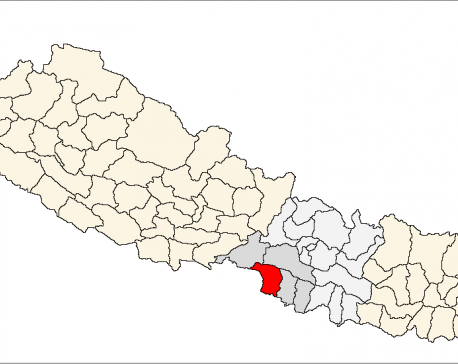
OR
Tikapur killings
Both the Supreme Court and the National Human Rights Commission have unambiguously said, and repeatedly, that the government cannot withdraw criminal charges against those accused of serious human rights violations. Moreover, any attempt by the executive to interfere with sub judice cases qualifies as obstruction of justice, a criminal offense. Yet the government on Thursday initiated the process of withdrawing criminal cases against those implicated in the killing of seven on-duty security personnel and a child at Tikapur of Kailali in August 2015. After the decision was widely criticized on Friday, the government later in the day clarified that while it accepted that the Madhes and Tharuhat protests at the time were ‘political’, there was no question of pardoning those engaged in ‘criminal activities’ during these movements. But this has not assured many because when the decision was made public on Thursday, there were no caveats about who would be pardoned—and who would not. It was intended as a sop to the protesting Madhesi parties that had made withdrawal of criminal charges against all agitators a condition to take part in the second phase of local election scheduled for June 14.
No one has the right to subvert the rule of law: not the government, or the political parties, or the security agencies. If the judiciary is pursuing criminal charges against some people, the judicial process must be allowed to run its course. And if the court finds some people guilty of grave rights violations, these people deserve to be jailed. Each and every citizen of this country has the right to free speech and peaceful assembly; in fact peaceful protests are hallmarks of a functioning democracy. But the use of violence under political cover—for instance the lethal violence directed at the seven security personnel killed at Tikapur—cannot be justified. The Madhesi parties are doing themselves discredit by lobbying for freedom of even those who have been directly implicated in these heinous killings. This logic applies in the opposite direction too. Any member of the security agencies who has been found to have used disproportionate force in peaceful protests deserves to be put in jail as well. If these overt acts of violence are to be pardoned, the rule of law in the country will soon break down, with unimaginable consequences.
Separately, such vital decisions on the part of the executive are also in violation of the electoral code of conduct, as they could impact the two-phase local election. Just like the government does, we would also like to see the participation of the Madhes-based forces in the second phase of local election, and believe that the major parties should show maximum flexibility to bring them on board.
This, however, does not mean the political parties have the license to flout the rule of law. If even the law can be bargained away in Nepal, it will send out a troubling message to the international community. Nepal, a signatory to countless human rights conventions, must uphold its international obligation. Otherwise the country will find itself increasingly isolated in the comity of nations.
You May Like This

Bara police release Maoist murder convict
BARA, Aug 31: A CPN (Maoist Center) cadre who was pronounced guilty of murder by the district court of Bara, has... Read More...

Police arrest murder accused
PARSA, Jan 9: Police have opened fire to arrest a murder accused on Monday. ... Read More...

2 youths arrested on murder charge
PYUTHAN, July 16: Police have arrested two youths on the charge of slaying 59-year-old Chatra Bahadur Sen in Bhajkateri 9... Read More...



Just In
- World Malaria Day: Foreign returnees more susceptible to the vector-borne disease
- MoEST seeks EC’s help in identifying teachers linked to political parties
- 70 community and national forests affected by fire in Parbat till Wednesday
- NEPSE loses 3.24 points, while daily turnover inclines to Rs 2.36 billion
- Pak Embassy awards scholarships to 180 Nepali students
- President Paudel approves mobilization of army personnel for by-elections security
- Bhajang and Ilam by-elections: 69 polling stations classified as ‘highly sensitive’
- Karnali CM Kandel secures vote of confidence
















Leave A Comment